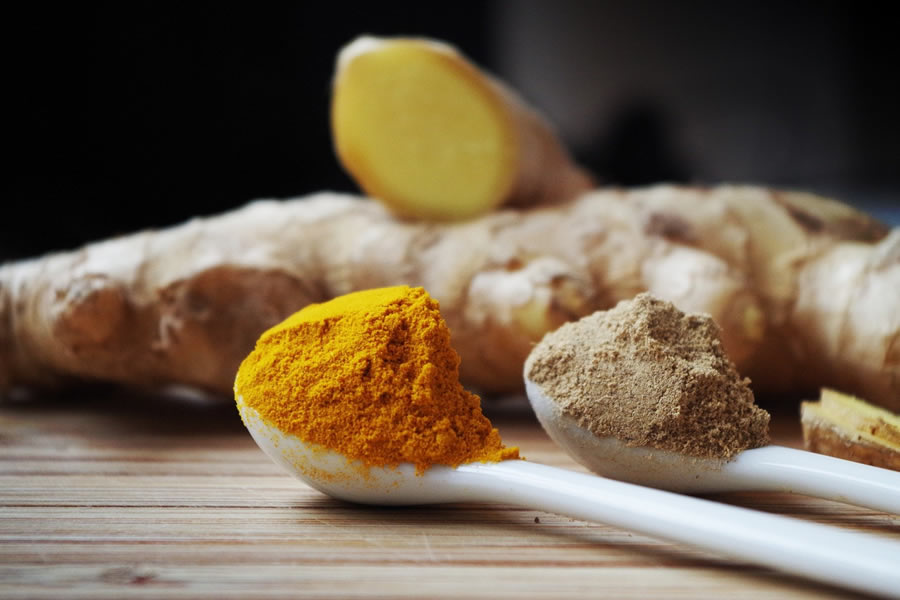Extensive research over the past half century has shown that curcumin, a component of the golden spice turmeric (Curcuma longa), has some promising effects. Promising effects have been observed in patients with various pro-inflammatory diseases including cancer, cardiovascular disease, arthritis, Crohn’s disease, ulcerative colitis, irritable bowel disease, gastric inflammation, atherosclerosis, diabetes, diabetic nephropathy. Curcumin has also shown protection against hepatic conditions, chronic arsenic exposure, and alcohol intoxication.
Recent research indicates that chronic inflammation initiates and promotes many disease states, including obesity, diabetes, cardiovascular, neurodegenerative and inflammatory bowel diseases. Curcumin exerts a protective role against inflammatory diseases by scavenging free radicals and suppressing inflammatory mediators.
Researchers have found that phytochemicals from natural foods, including spices and herbs, are safe and effective therapies to help reduce inflammation and prevent and treat disease. Curcumin one of the components of turmeric has been found to have not only anti-inflammatory properties but also cholesterol lowering, antidiabetic, and antioxidant properties.
Turmeric and Obesity / Diabetes Type 2
Obesity and insulin resistance in patients suffering from type 2 diabetes are associated with chronic low-grade systemic inflammation, resulting in increased inflammatory markers. Adipose tissues is the main origin of this inflammatory response. Evidence from cellular and animal studies supports the beneficial effects of curcumin on obesity and related metabolic disorders. Clinical studies support curcumin’s anti-inflammatory and antioxidant effects on obesity, leading to outcomes such as weight loss, improved blood lipids, increased basal metabolic rate, improved insulin sensitivity and reduced risk of atherosclerosis.
Dose-escalating studies have indicated the safety of curcumin at doses as high as 12 g/day over 3 months.

